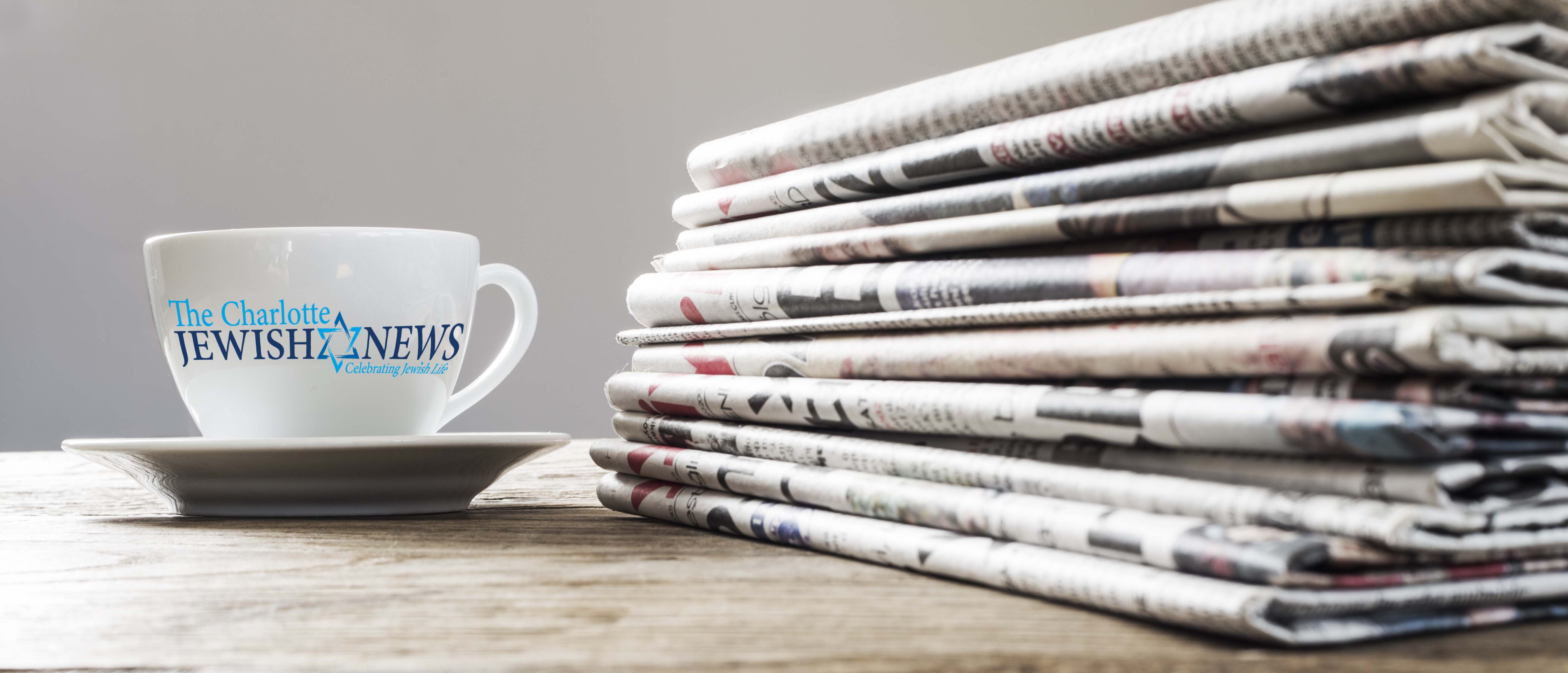
5 minute read
The Greenspon Center: Empowering Educators and Activists
April 2024
By Mary Eshet
Just as spring brings new growth all around us, the Stan Greenspon Holocaust and Social Justice Education Center is excited for the fruit our programs are bearing in April. The Center’s two certification programs will graduate new cohorts, and the “Seeing Auschwitz” exhibit will complete its Charlotte tour on April 15.
Certificate in Holocaust Pedagogy
The Certificate in Holocaust Pedagogy (CHP) is having a tremendous impact on students across the state. Last year, graduates were able to apply their learning in ways that impacted Holocaust instruction for more than 170,000 students, and they will continue to do so each year.
“The cohort graduating this April will have even farther reach, with educators working in school districts different from the first cohort and individuals overseeing the creation and implementation of the new Holocaust elective at the state level,” said Katie Cunningham, Holocaust curriculum and outreach specialist at the Greenspon Center. “Graduates will expand their impact through their final projects, which include delivering professional development at their schools, within their districts, or at the state level.”
The two cohorts will travel together to Poland, meeting in Warsaw on June 21 and continuing to Krakow. The trip will be grounded in sound pedagogy and reflection, allowing participants to walk away with individual and collective meaning they can apply to their work with students and other educators. Due to grants and donations, most expenses for the experience will be covered for educators, including a partial airfare stipend.
Direct quotes from participants in the program reflect the meaningfulness and value of their experience:
“I am walking away with so much more than I expected. I don't think I realized my knowledge gaps or misunderstandings of history until this course."
“I learned the importance of approaching this topic with sensitivity, empathy, and a deliberate consideration for teaching trauma and the emotional impact the content of the Holocaust may have on the learner.”
Social Justice and Community Organizing
The Greenspon Center’s Social Justice and Community Organizing (SJCO) Certification program trains participants with political education and practical skills to effectively organize for social change. In April, the second cohort of this program will graduate.
Judith Brown, executive director of Project 70Forward, a nonprofit committed to the advancement of people with disabilities, was among the first cohort of 15 participants, graduating in Spring 2023.
“My main goal in attending the Social Justice and Community Organizing class was to get over my hesitation around activism and organizing to fight injustices. Even as an executive director of a grassroots nonprofit, I felt inadequate when it came to getting people organized around a cause,” said Brown. “Before the class ended, not only did I know I was a good fit, but I used my class praxis project to start a new program, which would eventually spin out to form a state-wide initiative and coalition.”
With support from classmates and SJCO staff, she joined three coalitions that had a focus on voter protection and education, galvanizing support for voters with disabilities. From those small steps, REV UP NC, a statewide coalition, has been formed — the first of its kind in North Carolina.
“Without the work, support, mentorship, and focus of the SJCO class, I would not have been a part of this great civic development in our state,” said Brown.
“Seeing Auschwitz”
The “Seeing Auschwitz” exhibit will host its last visitors in Charlotte on April 15.
“It is hard to believe this exhibit is coming to a close,” said Judy LaPietra, associate director of the Greenspon Center. “The response from the community has been tremendous, and visitors consistently shared how impactful the experience was for them. With antisemitism and Holocaust denial continuing to rise, even right here in our community, this exhibit was a powerful reminder that we cannot look away and remain indifferent in the face of discrimination and violence.”
Thanks to the generosity of donors, the exhibit was free for students, and thousands of regional students toured the exhibit since its opening on Feb. 9.
Educators expressed their appreciation for the opportunity:
“The exhibit was not only educational but also deeply impactful. The inclusion of photographs allowed students to visualize and conceptualize the gravity of what took place, making the learning experience even more profound.”
“I particularly appreciated how the exhibits were curated to juxtapose the lackadaisical attitudes of the Nazi guards with the evils they were perpetrating; it really brought home to students the importance of awareness of humanitarian issues.”
One student wrote in a reflection about the exhibit:
“The whole image, so largely in front of me, well, I suddenly found it overtook so many of my emotions. The detail in which the Nazis had everything planned out, the systematic procedure of where everyone went, and how officers willingly were aware of and facilitated the mass killings, brought out much emotion in me. On the wall there was almost a poem from a survivor saying that she will continue to remember what happened for the rest of her life, pleading the world to never forget what happened. I don't think I ever will.”










